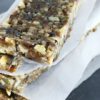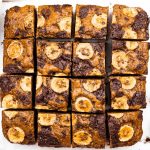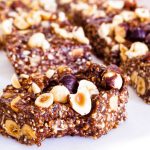
Healthy Lifestyle
Wholefoods for a Healthy Gut
Following on from last weeks article Understanding Gut Health by Jesabe Warner, here are our top wholefoods for fostering a healthy gut.
Slippery Elm
The inner bark of the slippery elm tree is long known for its medicinal qualities and healing effect on the gut. Once slippery elm is ground into a powder and mixed with water, it becomes mucilaginous (gel-like) in texture which accounts for most of its medicinal properties. The gel has demulcent (soothing) actions on all mucous membranes in the body including the digestive tract. It also has an astringent effect, tightening the surfaces it comes into contact with and providing a barrier to bacterial infections as well as relieving diarrhoea. On top of this, slippery elm is rich in nutrients and can be used as food for infants, the elderly or patients with intestinal inflammation.
Due to the soothing nature of Slippery elm on the Gastrointestinal Tract, it is recommended as a super nutrient in the case of diarrhoea, constipation, haemorrhoids, irritable bowel syndrome (IBS) or for expelling tapeworms. (Let’s hope the latter we never need visit!)
Slippery elm can be taken in water as a mucilaginous drink, added to smoothies, or sprinkled onto breakfast cereal.
Black Turtle Beans
The high fibre content of Black Turtle Beans helps to improve digestion by keeping the digestive tract clear of toxic build-up. The fibre acts much like a chimney sweep cleaning out a chimney, only cleaning out the intestines, including the inner walls. Cleaning and detoxifying in this way supports the gut flora colonies to remain balanced and also contributes to healthy bowel flow and motion.
This has an overall affect on digestion in preventing unwanted symptoms such as constipation, Irritable Bowel Syndrome (IBS) and diarrhoea. Black beans have also been shown in studies to protect colon health and help prevent colon cancer due to their high antioxidant content.
Black Turtle Beans are perfect for making Mexican dishes such as Chilli Con Carne, Black Bean Salad, Re-fried Beans or just for making simple winter casseroles.
Pepitas
Pepitas, otherwise known as pumpkin seeds, are a super little food packed with valuable nutrients. Just a small amount can provide our bodies with a substantial amount of fibre, healthy fats and magnesium, all of which are good for digestive health. Pepitas are also very high in zinc. Recent studies have linked zinc deficiencies with altered gut bacteria, suggesting that the mineral plays an important role in maintaining healthy gut bacteria. Zinc is also necessary for producing strong stomach acid which is vital for breaking down food for nutrient absorption in the small intestine.
Pepitas are great to eat with just about anything. On their own, in a nut and seed mix, sprinkled on savoury or sweet dishes. You just can’t go wrong.
Carob Powder
Carob powder is one of our favourite wholefoods in wintertime and also it’s a great caffeine free replacement for coffee and chocolate. For digestion, carob is high in insoluble fibre, which supports the process of water binding in the digestive tract enhancing the overall health of the gut. Carob also contains tannin’s which are known to increase the effectiveness of particular enzymes that help alkalise the body and regulate digestion. For this reason carob is also a good food to support the treatment of diarrhoea and other related digestive conditions through its ability to reduce acid production.
Carob powder can be consumed in beverages hot and cold, as in a hot carob (rather then hot chocolate), or in smoothies. It can also be used in baking cakes as you would use cocoa or cacao powder.
Rolled Oats
The digestive benefits of eating whole or rolled oats has been talked about time and time again. The reason for this is mostly due to the high fibre content. Oats are high in all 3 types of fibre; soluble, insoluble and resistant starch. Each of these contribute differently to intestinal health. Whilst soluble fibre softens stool and increases nutrient absorption, insoluble fibre is the type of fibre that bulks our stools – both of which are important for keeping the digestion flowing and our bowel movements regular. Resistant starch is a third type of fibre found in oats and some other foods that acts like a pre-biotic, feeding the friendly bacteria in the gut which supports the overall gut flora colonies.
Oats can be consumed in many ways, either as a porridge or in muesli, or they can be used to bake breads, biscuits, muffins and other deserts.
LSA (Linseed, Sunflower & Almond Meal)
LSA is another of our favourite wholefoods in store for its flavour and versatility. You can add it to smoothies, sprinkle it on cereals or porridge, put it into baking… it’s delicious even when added as a garnish to warm salads. In relation to the gut, LSA is high in fibre and packed full of nutrients. This combination means slower movement through the intestines and greater nutrient absorption. LSA offers a good amount of calcium, magnesium, Vitamin E and zinc, all of which are all important nutrients for digestive health.
LSA meal can be added to smoothies, sprinkled over cereal or used sparingly in baking.
Remember that Gut health is dependent on many factors, so make sure you take a holistic approach to caring for your digestive health, and use these wholefoods as a support and not a cure. Where there are persisting symptoms, you should always contact a health practitioner.


















Leave a reply